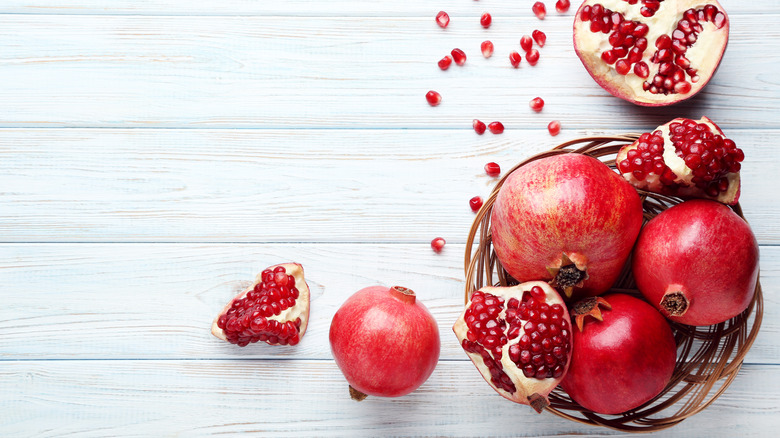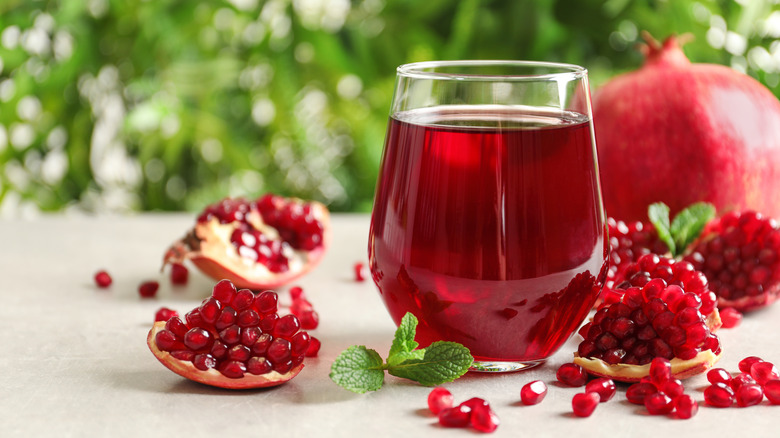Can Pomegranates Lower Blood Pressure?
The juicy, plump, and red fruit known as the pomegranate is brimming with nutrients. While the outside is round and red, the inside has white flesh with translucent small juicy sacs, known as arils (per Food Source Information). These pomegranate seeds are where the nutritional value stems from, creating a fruit loaded with fiber and minerals, but low in fat and calories (via Healthline). One serving of pomegranate (about 282 grams) contains magnesium, vitamin C, potassium, folate, phosphorus, iron, and calcium (per Healthline). It's no wonder that pomegranates are commonly called a superfood. In fact, some research suggests this superfood can lower blood pressure and support heart health (via WebMD) but does it actually work?
According to preliminary research, pomegranates have a high antioxidant volume and contain chemicals that potentially delay arteries from hardening (via WebMD). Known as atherosclerosis, reports have indicated that drinking polyphenol-rich pomegranate juice prevents this by lowering blood pressure (via WebMD). One 2017 review published in Pharmacological Research found that after participants drank the juice, they drastically lowered diastolic and systolic blood pressure. A study published in Clinical Nutrition explains this decrease is likely due to the fruit juice's ability to lower various amounts of an angiotensin-converting enzyme, which is responsible for regulating blood vessels and pressure.
How much should you drink daily to lower blood pressure?
In order to feel the effects of pomegranate juice, a 2012 trial published in Plant Foods for Human Nutrition suggests drinking a cup of the fruit juice every day for 28 days. This could potentially lower blood pressure short term due to the polyphenol-rich substance. A 2017 study published in Pharmacological Research found a decrease in blood pressure (both diastolic and systolic), regardless of the amount of juice consumed or the duration.
However, there are a couple of things to note when selecting a quality pomegranate juice. MedicalNewsToday shares that you want to be mindful of sugar and purchase juices that are sugar-free. Some prefer the juice for its convenience, but eating the arils offers the same benefits (via MedicalNewsToday).
Even though research is limited around the role pomegranates play in blood pressure management, incorporating this fruit is a great idea. Other benefits of this sweet fruit include anticancer support, brain health, heart health, digestive support, muscle recovery, and urinary health (via Healthline). Ultimately, adding pomegranates to your diet is a delicious and safe idea. However, if you're concerned about your blood pressure, consult your physician. If you're not a fan of pomegranate, opt for tomato or beet juice instead, as Healthline points out these colorful veggies may reduce blood pressure, too.


